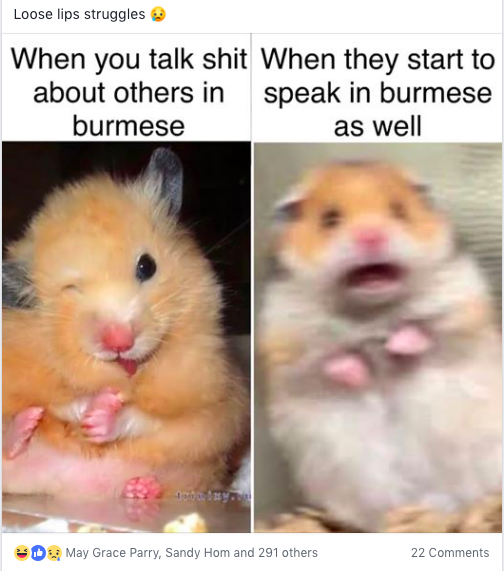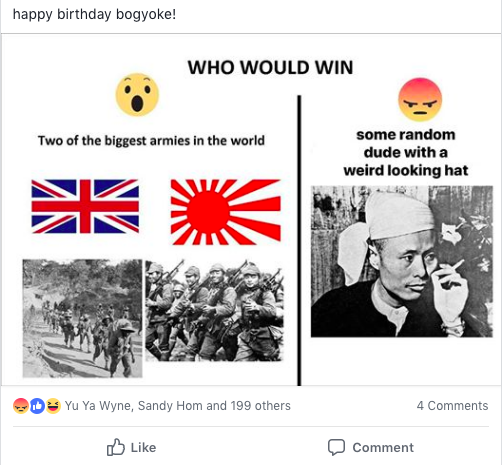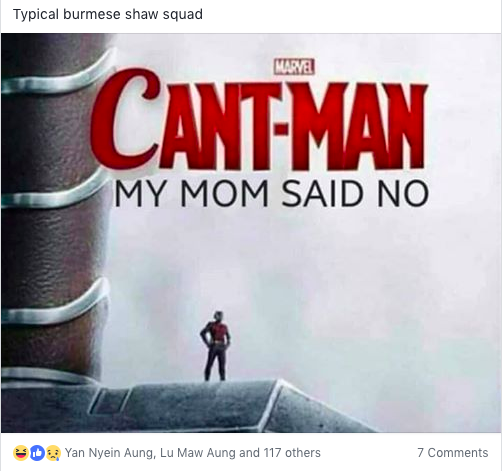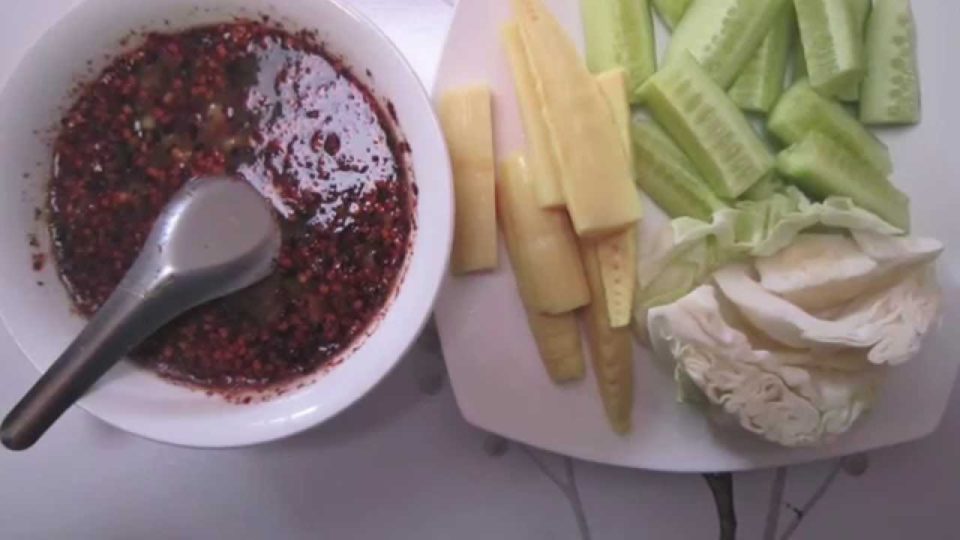From snarky historical references (who would win, two of the largest armies in the world or a random guy with a weird looking hat, i.e. General Aung San) to heated discussions about Burmese identity and language, a new Facebook group is creating a space for Myanmar-specific memes — and millennials are paying attention.
Subtle Burmese Traits (SBT), a community founded by Australian-Burmese Shimona Surin and modeled after the global phenomenon Subtle Asian Traits (SAT), has soared in popularity since its December launch, with it’s overwhelmingly young membership jumping from 700 to 4,000 in just the past month.
Originally dubbed “Where’s Burma?” (a question Burmese people are all-too-familiar with), SBT is occupying a space that was wide open for jokes, call-outs and burns directly related to Myanmar and its culture.
“There were so many memes relating to Asian cultures such as Vietnamese and Chinese in SATs; seeing a Burmese meme was very rare. I created SBT as a joke between myself and a few other Burmese friends,” Surin told Coconuts Yangon in a recent interview.
“After directing some Burmese people from SATs to SBT, it began to grow more and more.”
The immediate popularity was a surprise, she said, as was the global nature of the audience.
“It’s surreal, because it’s not only Australian-Burmese but Burmese young adults from all over the world. I never imagined that Burmese adolescents and young adults would have a platform to connect and relate to each other.”




So why memes?
Surin thinks they work so well as a connector because they’re quick, funny and effective.
“They are lighthearted way for young people to find connections with each other through humor, and convey many different ideas to large groups of people,” she said.
Hein Htet Oo, a group member, told Coconuts Yangon he has his own reasons for preferring SBT over other meme groups. For one thing, swear words in your own language.
“I just find Burmese humor to be funnier; something about Burmese cussing that just gets me going,” he explained.
Aside from the jokes, discussions on the board about Burmese identity have enflamed vigorous debate about what it means to be a first-generation Burmese immigrant in a foreign country and whether or not you should learn the language if you grow up abroad.
According to Surin, the answer is pretty straightforward.
“Some may find picking up the language hard, maybe due to exposure and environment. I think as long as you respect your culture and the culture of others, whether you can speak Burmese or not doesn’t really matter,” she said.
Surin views her position as administrator and moderator as part facilitator, part community builder, and part enforcer.
“My responsibility is to allow these discussions to continue so we can understand each other’s views, ideas and beliefs, but not letting discussions get out of hand and lead to bullying, blaming or online harassment,” she said.
As membership grows, Surin is beginning to systematize the way posts are reviewed and adding more admins to the SBT team.
“With the introduction of post approvals, there has been a minimization of these issues. I am currently scouting mods to help as the page grows.”
While she didn’t initially dream that a designated space for Burmese memes would take off globally, Surin now says she recognizes potential for it to be a bridge between Burmese youth in Myanmar and abroad.
“I see the page reaching new heights and reaching more Burmese youth living outside of Myanmar — usually in a Western country — allowing them to see and interact with others who are living in a completely different culture.”




